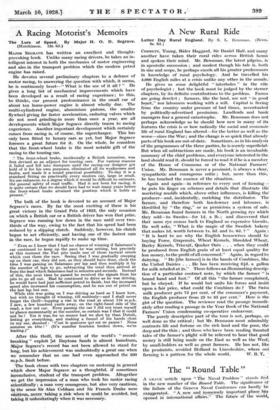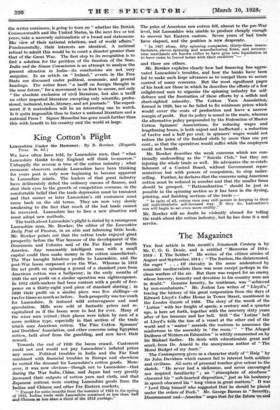The "Round Table
A ottAvE 'article. upon ". The Naval Problem " stands firsi in the new number of the Round Table. The significance- of the failure of the Geneva Naval Conference can hardly be exaggerated. new aP4. 41YneP. qqY..important Phase hg$ opened in international affairs." The future of the world, the writer continues, is going to turn on " whether the British Commonwealth and the United States, in the next five or ten' years, take a narrowly nationalistic or a broad and statesman- like view of their national relationi, and of world -affairs." Fundamentally, their interests are identical., A national refusal to admit this would be to court a disaster greater than that of the Great War. The first step to its recognition is to find a solution for the problem of the freedom of the Seas. India and the Simon Commission is an attempt to analyse the present situation in India—its conclusions are not , very sanguine. In an article on " Ireland," events in the Free State are discussed under political, economic, and general headings. The writer fears " a tariff on foreign thought in the near future," for a movement is on foot to secure, not only " the absolute exclusion of civil literature, but also a tariff on other imported literature excepting only scientific, profes- sional, technical, trade, literary, and art journals." The experi- ment if it materializes will be an interesting one to watch. Is it quite impossible thus to foster a national literature and a national. Press ? Signor Mussolini has gone much further than this with benefit to his country and the world at large.



























































 Previous page
Previous page